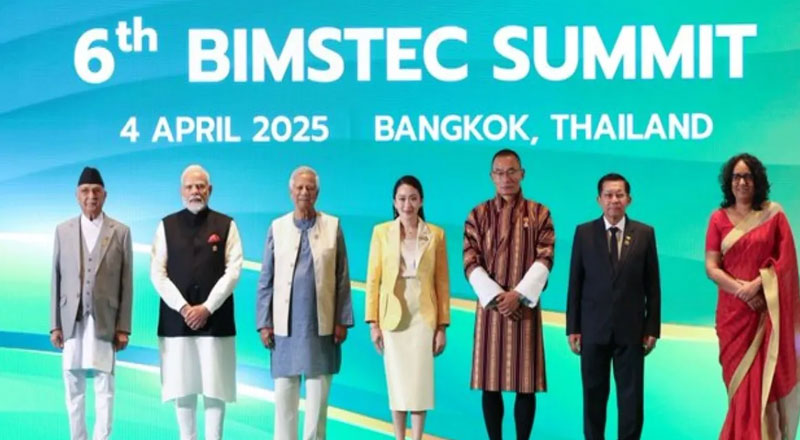Shifting Alliances in South Asia
The relationship between India and Bangladesh has historically been one of cooperation, mutual respect, and shared economic and cultural ties. India played a crucial role in Bangladesh’s liberation in 1971, and over the years, the two nations have collaborated on trade, security, and infrastructure. However, recent geopolitical developments indicate a shifting dynamic, with Bangladesh exploring deeper economic ties with China. During a recent visit to China, Bangladesh’s Chief Adviser Muhammad Yunus made a statement suggesting that India’s northeastern states being landlocked could present an economic opportunity for Beijing to expand its influence in the region. This comment has sparked diplomatic concerns in India, highlighting potential security and strategic implications.
Yunus’ Visit to China and Controversial Remarks
During his four-day visit to China, Muhammad Yunus signed nine agreements with Beijing, strengthening economic ties and seeking greater Chinese involvement in Bangladesh’s development. While addressing Chinese officials, Yunus referred to India’s northeastern region as being landlocked, suggesting that Bangladesh could serve as the “only guardian of the ocean” for these states, offering an opportunity for Chinese economic expansion.
This statement, which surfaced on social media, immediately drew reactions from Indian policymakers and analysts. Yunus emphasized the importance of considering China as a “good friend,” portraying Beijing as a balancing force in Bangladesh’s foreign policy. He further expressed his expectation that bilateral relations between China and Bangladesh would enter a new stage of collaboration.
China-Bangladesh Economic Agreements
One of the major outcomes of Yunus’ visit was the signing of nine economic agreements, including investments, loans, and grants totalling $2.1 billion from the Chinese government and its enterprises. Bangladesh also welcomed Chinese companies to participate in the Teesta River Comprehensive Management and Restoration Project (TRCMRP), signaling deeper cooperation in infrastructure and resource management.
Bangladesh’s outreach to China is not unprecedented, but the scale of agreements signed during this visit, along with Yunus’ remarks, suggest an increasing strategic alignment. This shift has raised concerns about China’s growing influence in South Asia and the potential impact on India’s security and trade routes.
Indian Response: Diplomatic and Political Reactions
Yunus’ remarks about India’s northeastern states triggered sharp reactions from Indian officials and political leaders. Sanjeev Sanyal, a member of Prime Minister Narendra Modi’s Economic Advisory Council, questioned the intent behind Yunus’ comments, emphasizing that China’s investment in Bangladesh should not be linked to India’s northeastern region.
Assam Chief Minister Himanta Biswa Sarma strongly condemned Yunus’ statement, calling it “offensive and unacceptable.” He highlighted the strategic concerns associated with India’s “Chicken’s Neck” corridor, a narrow stretch of land connecting the northeastern states to the rest of India. Sarma stressed the need for India to enhance its road and rail infrastructure to ensure alternative connectivity routes and reduce dependence on Bangladesh.
Tipra Motha Party chief Pradyot Manikya took an even more aggressive stance, advocating for a reassessment of India’s historical decisions regarding Chittagong port. He suggested that India should actively work to secure its own sea access by supporting indigenous groups in Bangladesh who have long-standing historical ties with India.
Congress leader Pawan Khera also weighed in, criticizing the Indian government’s handling of foreign policy. He warned that Bangladesh’s invitation to China to expand its influence in the region poses a strategic threat to India, especially in the context of China’s increasing presence in Arunachal Pradesh and other northeastern states.
Implications for India-Bangladesh Relations
Bangladesh’s growing closeness to China, coupled with Yunus’ remarks, signals a potential shift in regional dynamics. While India and Bangladesh have enjoyed strong ties in the past, recent political changes in Dhaka and increasing economic reliance on China suggest a recalibration of Bangladesh’s foreign policy.
For India, this development presents both strategic and economic challenges. The northeastern region, often referred to as the “Seven Sisters,” relies heavily on transit routes through Bangladesh for trade and connectivity. Any shift in Bangladesh’s policy that favors China could impact India’s access to these vital routes. Additionally, China’s involvement in projects like TRCMRP raises concerns about Beijing’s increasing influence in South Asia’s water and infrastructure management.
Navigating a Changing Geopolitical Landscape
India and Bangladesh share deep-rooted historical and cultural ties, but evolving geopolitical realities necessitate a recalibrated approach. While Bangladesh has the sovereign right to engage with multiple global powers for its development, India must reinforce its regional partnerships to maintain strategic stability. Strengthening infrastructure in the northeast, improving diplomatic engagement, and fostering economic incentives for Bangladesh could serve as key strategies to counterbalance China’s growing influence.
The response from Indian policymakers underscores the urgency of securing alternative connectivity routes and reducing dependency on Bangladesh for trade and transit. As South Asia’s geopolitical landscape shifts, India must remain proactive in safeguarding its strategic interests while ensuring that its long-standing partnership with Bangladesh remains strong and mutually beneficial.
(With inputs from agencies)





